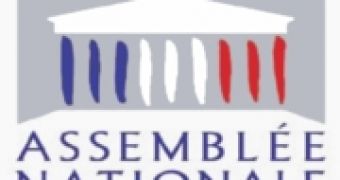The French National Assembly has given a favorable vote to the controversial anti-piracy law that civil liberties and net neutrality groups are heavily contesting. After previously being passed by the Senate, a lot of people were hoping that the lower chamber would bring significant modifications to it.
France's proposed legislation to combat Internet piracy has faced serious critics for multiple reasons. Known as "the HADOPI law," named after "la Haute Autorité pour la Diffusion des Œuvres et la Protection des Droits sur Internet," the new authority body it will create, it is constructed around the idea of banning people from using the Internet for up to a year for repeated piracy misconduct.
Basically, it empowers copyright holders to search file-sharing networks for infringement on their works and report such abuse to the High Authority for the Distribution of Works and the Protection of Rights on the Internet (HADOPI in French). This regulatory body will then send warning notifications to the people discovered to be distributing copyrighted material without authorization.
If the initial warning is ignored and this behavior is repeated, the authority can force an ISP to suspend the Internet access of that person. A third strike will result in a ban from using the Internet for one year. This is achieved by maintaining a blacklist of individuals, which the Internet service providers are legally required to honor.
Pressure from civil liberties groups, backed up by several members of the Parliament, has led to several modifications of the original draft, including the specification that copyright holders living in countries that are considered tax havens won't be able to make use of this law. Additionally, people will not be forced to pay their monthly Internet bill for the duration of the ban.
However, significant issues still remain, such as the use of open or hijacked wireless networks for Internet piracy, which could result in banning innocent people. The law tries to address this through a government-developed filter that can be installed on computers and implicitly protect their owners from being accused of piracy.
This filter in itself poses a problem, as it is neither cross-platform nor open source and interferes with individuals' right of exclusively using open source software. The law also comes into conflict with the legislation of the European Union, which only allows for courts to order the suspension of someone's access to the Internet, deemed vital for education. The French government hopes that this European law will be amended to allow "any legal authority" to take such actions.
The three-strike anti-piracy law still has some way to go until it is promulgated by the French President. The text differences in the drafts voted by the two Parliament chambers will need to be worked out by a joint commission. The constitutionality of the law can also be attacked by members of the Parliament, which will prompt a review by the Constitutional Council.

 14 DAY TRIAL //
14 DAY TRIAL //